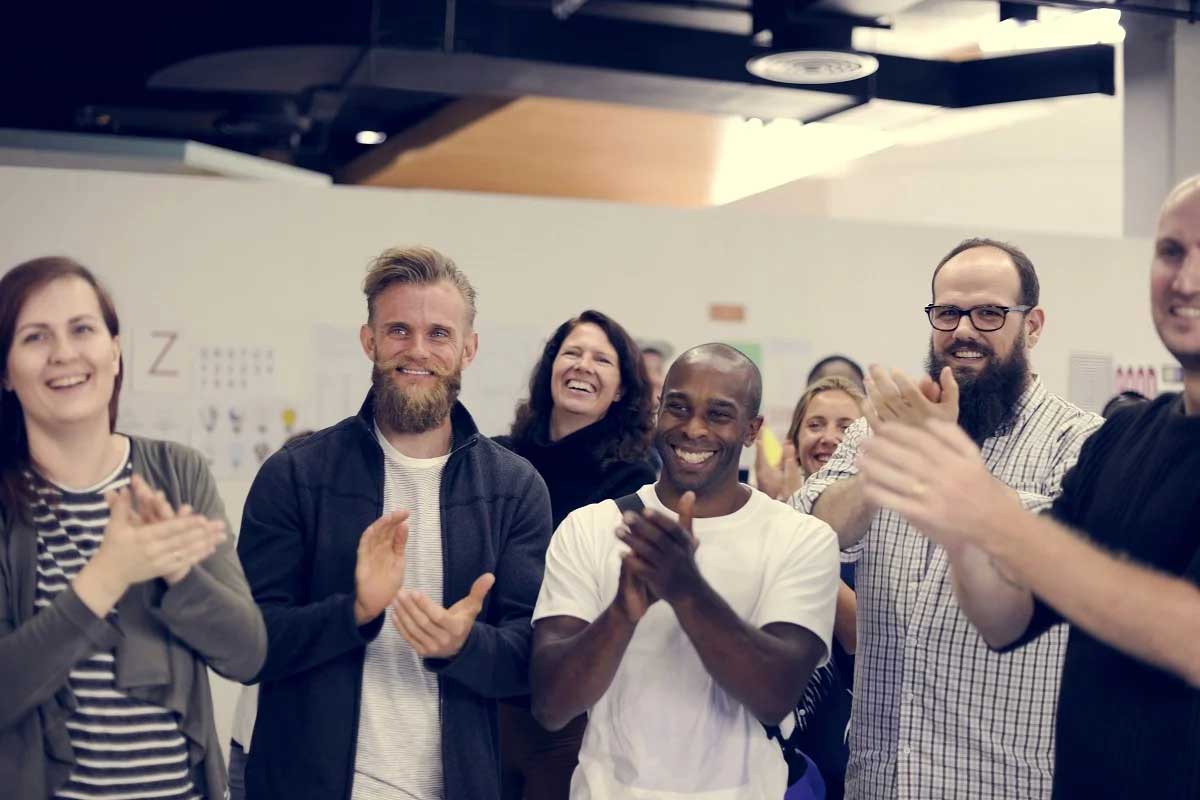Trust and respect are built from a leader’s many actions.
Stating the words “I trust you” and then micro-managing to task implies exactly the opposite.
“I trust you” is only a short step away from the classic contradiction: “With all due respect.”
Trust and respect are words better not uttered but acted.
My understanding of what ‘trust’ really meant in a workplace arrived late – in my mid-forties.
I joined a software development company and was fortunate to be invited to their annual Kick-Off, even before my first official day in the office. (Back when offices were a thing… but that’s a pre-COVID story.)
Kick-Off was whole of company celebration; a reflection on the year past and a look forward to the year to come. A junkett - I hear you cry! Of sorts, yes. However, with that healthy cynicism aside, a great opportunity to bond with people; to connect to a diverse and geographically distant national team.
Over one weekend a year we put faces to names, we discussed how to better help our clients, we held innovation workshops and discussed ways to improve and new ways of working. We laughed, cried, told tall tales – and some true.
At some point during the night the Company’s CEO, Graeme Strange wandered onto the stage and requested that we focus for a few minutes. We did. About one minute into his speech – I was floored! Gob-smacked (not literally, I wasn’t punched!). Rather, I knew this place was different to my past work experience.
What floored me? Graeme announced a global award – a massive achievement for an Australian company. The 100 strong crowd erupted – went coco bananas. It was cool – but the coolest thing – he proceeded the announcement with:
“Hey. What I am about to tell you is under embargo; the public announcement is sometime away yet. Let’s enjoy the moment, fuel the party but let’s keep it in the tent for now.”
Or words to that effect.
Giving forewarning of that award – ahead of a global announcement - was risky especially with a team of technologists – deeply connected to social networks and related technology that can spread news quickly.
Here’s the point. We leaders (in formal roles or not) talk about ‘trust’. We want trust but how do we engender trust?
The simple action of letting people know what’s happening - of bringing everyone into the tent - is one important way.
By speaking openly and transparently (talking straight), people implicitly know that they are trusted. Further, in an ‘award’ context - their efforts over the year have been recognised, they are appreciated. They are valued.
Rinse and repeat for the following year. More awards, more announcements – more trust. More respect. And improved performance – this was a high-performing and profitable organisation.
Fast forward to 2020. On a personal level, I find myself in an excellent role at SuperFriend – a team I have admired from afar for numerous years now.
I have been immersed in workplace mental health and thinking about issues like trust, respect, authenticity, humility - in the context of workplace mental health – for many years now.
Unless you have a supreme ego – it’s pretty hard to say “I am a humble leader” or an authentic leader or a trusted and respected leader. These are words for others to bestow … not for leaders to espouse.
Again, I reflect on words verses the action of leaders and a more recent an example springs to mind.
Each year, SuperFriend conducts Australia’ largest annual workplace mental health survey the Indicators of a Thriving Workplace. The 2020 report was released in October 2020. Please read it – it is an excellent document with great insight on how we all can help improve workplace mental health.
As findings and insights from this survey started to rise from the research the SuperFriend leadership team ensured that the broader team was regularly updated with key findings. Again, under embargo. Again – no threats issued – rather the act speaks for itself.
October – effectively Australia’s national mental health month – means our organisation from the CEO down is flat knacker. (AKA – quite busy!) So – it would be easy to dismiss internal updates as unnecessary - do we really have time for regular internal updates via Zoom? Yes. Absolutely.
And now – I look back at years of leadership and think how many times I played my part keeping information (to myself or others) that could have been shared with the broader team to build trust, respect, and connection.
Alas – I know I didn’t communicate as much as I should have, but if I had my time again – I would.
And for what purpose do we keep information to ourselves? Probably fear of being wrong. Or power - information is power as the saying goes. Or does it point the fact that I am very risk adverse and perhaps it is better to wait? Probably a combination of all at different times.
Or what about selective trust that is evidenced by whispers in the corridor (virtual on chat channels or face to face in corridors) – these are even more corrosive on culture. Comments like: “Hey, I wouldn’t tell everyone this but….”
People are whispering but in reality – they are shouting how they distrust everyone. Awful.
How many people reading this article sit around a leadership table and debate what can and can’t be said? Often the basis of the discussion is on what can’t be said. We can’t say that because:
- we don’t have all the information yet
- our plans aren’t finalised
- budgets aren’t set
- we are still debating ourselves
- the are many options to consider
- and a million other excuses to keep information at bay.
I get it – and sometimes there are legal obligations or other considerations - but perhaps the question is better framed – what can we say?
If nothing is said, you can be sure the vacuum will be filled with rumour and innuendo.
Honest transparent conversations – based on fact or at least what is known at any given point - is surely better than rumour filling the silence.
Create deeper connections by valuing relationships; caring about the people in your organisation and providing ongoing, regular communications. Create an inclusive culture by actively listening to the diversity of thought in your organisation and acting on that information accordingly.
Invite your teams into the tent. Let them know what’s going on. Discuss the reality of a situation and have the difficult conversations if needed but listen, talk and connect. Further, make the tent a safe place and open up to your own mistakes and uncertainties. In this way, people will understand that they have permission to speak too and feel they can talk openly, celebrate, challenge and debate ideas. This discussion will fuel team and business performance and importantly, in a mental health sense, people are more likely and indeed, encouraged to reach out for help and support Early.
Over time it will be others that start to utter words like trust, respect, humility, honesty, authenticity … and then – you’re on a pretty good road. Then your actions are influencing the culture and how others describe your workplace. There is open communication and you can use your ears to feel the true pulse of the organisation – by listening to our people we can make better decisions.
Alas, listening is only possible if the voices feel safe to open up – and thus we get back to the tent. Are our people in or out? And do people feel like they can open up without fear. I would prefer the roar of a thousand voices than the deafening silence on none. I would prefer the challenge of balancing decisions based on the feedback of many rather than guessing in the void of nothing.
So back to the equation in the title. Trust + Respect = actions not words. With your actions build trust and respect and then reap the benefits of being a connected, respected leader.
By Mark Leopold,
Head of Policy and Strategic Alliances, SuperFriend







.png)
